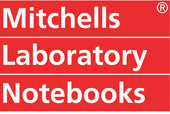In the world of scientific research and innovation, ideas are assets and protecting those ideas is critical. For years laboratory notebooks have played a crucial role in documenting research processes, hypotheses, experiments, and results. While they are a vital tool in research management, the use of laboratory notebooks goes well beyond this, they hold significant legal and evidential value and can have important implications for issues ranging from the prevention of fraud to protecting intellectual property (IP).
This blog explores how paper-based laboratory notebooks intersect with IP law, and why meticulous documentation remains fundamental to safeguarding innovation.
An overview
In the UK, intellectual property rights cover a range of protections including: patents, copyright, design rights, trademarks and trade secrets. For researchers and inventors, patents and trade secrets are particularly relevant. But proving when and how an invention was created can often be the difference between owning an IP right - or losing it.
Why laboratory notebooks matter
Laboratory notebooks serve as contemporaneous records of scientific thought and experimentation. Key reasons they matter:
Proof of concept and development
· a properly maintained lab notebook can establish the timeline of an invention's development. This is critical for demonstrating who invented something first, especially in collaborative or competitive research environments
Supporting patent applications
· documenting your work helps prove the originality and scope of your invention when filing a patent
Protection against IP theft
· if your idea is stolen or leaked, a well-maintained notebook can demonstrate prior ownership and protect against misappropriation.
Best practice for purchasing and maintaining a laboratory notebook
To make sure your laboratory notebook stands up to scrutiny, it’s advisable to follow these best practices:
· use a bound notebook: all Mitchells Laboratory Notebooks are thread-sewn and bound as loose pages can be tampered with whilst bound pages provide integrity
· write in permanent ink: pencil or erasable ink can raise questions about authenticity
· date every entry: include the date for each experiment or idea logged
· don't leave gaps: blank spaces can look suspicious, draw lines through any unused sections
· sign and witness regularly: have a colleague who is not involved in the project sign and date entries, this is especially useful in industry settings
· never remove pages: tearing out pages can invalidate the record
· store securely: keep notebooks in a safe location to prevent loss or tampering.
Conclusion
For researchers, academics, and industry innovators, the laboratory notebook remains a vital tool in the intellectual property toolkit. By maintaining accurate, detailed, and timely records, scientists not only uphold good research practice but they also lay the groundwork for protecting the very innovations that can change the world.
In an age of rapid innovation and digital transformation, don’t overlook the value of pen and paper when it comes to securing your ideas. View our range of laboratory notebooks on our website or contact us to discuss your requirements.

